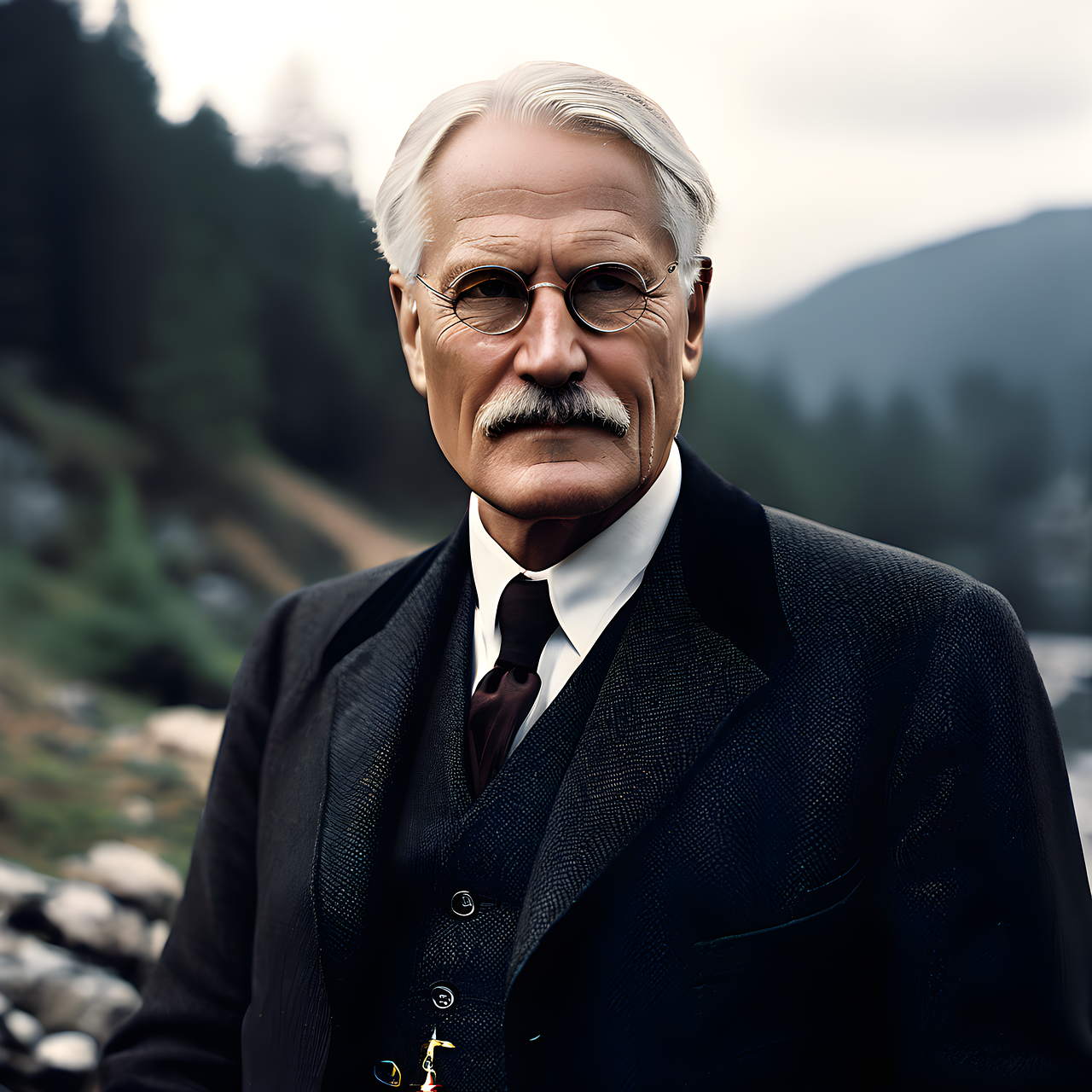La teoría de la personalidad de Carl Rogers se enfoca en la capacidad innata del ser humano para desarrollarse y elegir su propio rumbo. A diferencia de corrientes más pesimistas, Carl Rogers argumenta que nadie es prisionero de determinaciones biológicas o ambientales. En cambio, la persona es libre en su desarrollo personal, creando un autoactualizarse con metas vitales y adaptándose al camino a lo largo del tiempo.
En palabras de Carl Rogers: La teoria de Carl Rogers personalidad nos lleva a entender que el individuo está en constante proceso de auto-desarrollo, experimentando y explorando su propio potencial. Esta forma de ser se conoce como persona altamente funcional. Estas ideas revolucionan la comprensión del ser humano, destacando la libertad y la responsabilidad que recaen en cada uno de nosotros.
La teoria de Carl Rogers teoría destaca la importancia del proceso de auto-desarrollo que ocurre durante la vida propia, un proceso constante de adaptación y ajuste a las circunstancias. Esta forma de ser se conoce como persona altamente funcional. Para Carl Rogers, el desarrollo personal es motor vital, y nuestra capacidad para elegir nuestro propio camino es fundamental para alcanzar una vida plena y significativa.
Carl Rogers y su legado
Carl Rogers, a través de su teoria de la personalidad de Carl Rogers, dejó un legado perdurable en el campo de la psicología y el desarrollo humano. Su enfoque humanista en la terapia y la educación revolucionaron la forma en que se abordaban temas como la autoestima, la creatividad y la toma de decisiones.
La influencia de Carl Rogers puede verse en diferentes áreas, como la psicología, la educación y el desarrollo humano. Su enfoque en la importancia del cliente como protagonista del proceso terapéutico revolucionó la forma en que se abordaban los problemas personales y emocionales. La teoria de Carl Rogers teoría también tuvo un impacto significativo en el campo de la educación, enfatizando la necesidad de un enfoque más interactivista y centrado en el estudiante.
La legítima influencia de Carl Rogers puede verse en figures como Abraham Maslow y Viktor Frankl, que también se inspiraron en sus ideas. Además, la teoria de Carl Rogers personalidad sigueBeing tema de estudio y aplicación en diversas áreas, desde la terapia humanista hasta la educación emocional.
El legado de Carl Rogers es un testimonio a la importancia de la empatía, la creatividad y la libertad del individuo. Su enfoque en el desarrollo humano y la autoactualización sigue siendo relevante hoy en día.
La Teoría Humanista 101
La Teoría Humanista 101 de Carl Rogers es un conjunto de ideas clave que describen cómo los seres humanos desarrollan y crecen a lo largo del tiempo. En su libro On Becoming a Person, Roger nos presenta cinco características centrales de la persona altamente funcional, que se han convertido en piedras angulares de esta teoría.
La primera característica es la apertura a la experiencia. Los seres humanos están diseñados para explorar y experimentar el mundo alrededor de ellos, aprendiendo y creciendo a medida que lo hacen. La segunda característica es el estilo de vida existencial, que se refiere a nuestra capacidad para crear nuestro propio significado y propósito en la vida.
La tercera característica es la confianza en uno mismo. Los seres humanos tienen la capacidad de confiar en sus propias decisiones y juicios, sin depender de fuerzas externas que las dicten. La cuarta característica es la creatividad, que se basa en nuestra capacidad para encontrar soluciones innovadoras y desafiantes a los problemas.
Finalmente, la quinta característica es la libertad de elección. Los seres humanos tienen la libertad de elegir nuestros propios caminos y crear nuestro propio destino, sin estar destinados por fuerzas externas. La teoria de Carl Rogers teoría sostiene que estas características son fundamentales para el desarrollo personal y emocional.
La Teoría Humanista 101 de Carl Rogers nos presenta un conjunto de ideas clave sobre cómo los seres humanos desarrollan y crecen a lo largo del tiempo.
Principios básicos de la Teoría Humanista
La Teoría Humanista de Carl Rogers se basa en una serie de principios básicos que describen el crecimiento personal y emocional. Algunos de estos principios clave incluyen:
El proceso de auto-desarrollo es un proceso dinámico y constante que ocurre durante la vida propia, donde se van construyendo nuevas opciones y oportunidades. La apertura a la experiencia es fundamental para este proceso, ya que nos permite experimentar y explorar el mundo alrededor de nosotros.
La confianza en uno mismo es crucial para el desarrollo personal, ya que nos permite tomar decisiones y elegir nuestros propios caminos sin depender de fuerzas externas. La creatividad también es fundamental, ya que nos permite encontrar soluciones innovadoras y desafiantes a los problemas.
La libertad de elección es un principio básico de la Teoría Humanista, que sostiene que tenemos la capacidad de elegir nuestro propio camino y crear nuestro propio destino. Esto se refleja en nuestra capacidad para tomar decisiones y adoptar roles sociales sin ser determinados por fuerzas externas.
Los principios básicos de la Teoría Humanista de Carl Rogers se centran en el proceso de auto-desarrollo, la apertura a la experiencia, la confianza en uno mismo, la creatividad y la libertad de elección. Estos principios están fundamentalmente relacionados con la idea de que los seres humanos tienen la capacidad para elegir su propio camino y crear su propio destino.
¿Quiénes son los seres humanos según Rogers?
Según Carl Rogers, los seres humanos son:
- Creativos: Los seres humanos tienen una innata capacidad para experimentar, explorar y crear.
- Experimentales: Estamos diseñados para experimentar y aprender sobre nuestro entorno.
- Sellos de elección: Tenemos la libertad de elegir nuestros propios caminos y crear nuestro propio destino.
- Procesos en desarrollo: Somos seres en constante crecimiento y desarrollo, y necesitamos oportunidades para crecer y aprender.
- Existencialmente significativos: La búsqueda de sentido y significado es fundamental para la condición humana.
- Deseosos de autenticidad: Los seres humanos tienen una necesidad innata de ser auténticos, genuinos y sinceros en nuestras interacciones con el mundo.
Según Rogers, los seres humanos son creativos, experimentales, sellos de elección, procesos en desarrollo, existencialmente significativos y deseosos de autenticidad. Estas características son fundamentales para entender el crecimiento personal y emocional humano.
Empatia, genuina confianza en la persona
Empatía: La empatía es una característica fundamental de la Teoría Humanista de Carl Rogers. Según él, la empatía significa ser capaz de comprender y compartir las experiencias emocionales de otra persona. Esto implica una genuina e incondicional aceptación de otra persona, sin juzgarla ni intentar cambiarla.
La empatía es crucial porque permite a los terapeutas humanistas crear un ambiente seguro y confiable para su pacientes. Al estar verdaderamente interesados en las experiencias y sentimientos de sus pacientes, los terapeutas pueden ayudarlos a sentirse comprendidos y aceptados, lo que facilita el proceso de crecimiento personal.
Genuina confianza en la persona: La confianza es otra característica fundamental de la Teoría Humanista. Según Rogers, la confianza se basa en la idea de que las personas tienen la capacidad para elegir y tomar decisiones sin estar determinadas por fuerzas externas. Esta confianza se sostiene en la creencia de que las personas son capaces de crear su propio sentido de identidad y propósito en la vida.
La genuina confianza en la persona implica un ambiente seguro donde los individuos puedan experimentar, aprender y crecer sin temor a ser juzgados o reprimidos. Al sentirse comprendidos y aceptados, las personas pueden desarrollar una mayor autoestima y sentimiento de autoconfianza.
La empatía y la genuina confianza en la persona son fundamentales para la Teoría Humanista de Carl Rogers. Estas características permiten a los terapeutas humanistas crear un ambiente seguro y confidable que facilita el crecimiento personal y emocional de sus pacientes.
Desarrollo personal como motor vital
Desarrollo personal como motor vital: Según Carl Rogers, el desarrollo personal es el motor vital que hace que las personas vivan con propósito y significado.
Rogers creía que el desarrollo personal era un proceso dinámico y constante que ocurre durante toda la vida. Esta idea se basa en la creencia de que las personas tienen una tendencia natural hacia el crecimiento y el perfeccionamiento, y que este proceso es esencial para alcanzar el pleno potencial humano.
El desarrollo personal como motor vital implica que las personas estén constantemente aprendiendo, creciendo y evolucionando a medida que enfrentan desafíos y oportunidades. Esto significa que las personas necesitan experimentar, explorar y aprender sobre su entorno y sus relaciones para sentirse vivas y realizadas.
En este sentido, el desarrollo personal es no solo un proceso necesario para alcanzar la madurez y la satisfacción, sino también una fuente de inspiración y dirección. Cuando las personas tienen una meta clara y una dirección, pueden sentirse motivadas y enfocadas en su objetivo, lo que les permite crecer y desarrollarse en forma significativa.
Según Carl Rogers, el desarrollo personal es el motor vital que hace que las personas vivan con propósito y significado. Es un proceso dinámico y constante que ocurre durante toda la vida, y es esencial para alcanzar el pleno potencial humano.
El rol del terapeuta como facilitador
El rol del terapeuta como facilitador: Según Carl Rogers, el terapeuta humanista debe ser un facilitador que ayuda a los pacientes a desarrollar su propio proceso de crecimiento personal y emocional.
Rogers creía que el terapeuta debía:
- Crear un ambiente seguro: Establecer una relación de confianza y seguridad con el paciente, permitiendo al paciente sentirse cómodo y dispuesto para hablar sobre sus sentimientos y pensamientos.
- Escuchar activa y empáticamente: Escuchar atentamente a lo que el paciente dice y mostrar empatía hacia sus emociones y experiencias.
- Ser genuino y auténtico: Ser auténtico y sincero en las comunicaciones con el paciente, mostrando una apertura y aceptación incondicional hacia el paciente.
- No juzgar ni condicionar: No juzgar o condenar al paciente por sus pensamientos, sentimientos o comportamientos, sino más bien ayudarle a descubrir sus propios patrones y tendencias.
- Permitir la expresión y exploración: Permitir al paciente expresar y explorar sus sentimientos y experiencias de manera segura y respetuosa.
Al tomar este rol como facilitador, el terapeuta humanista puede ayudar a los pacientes a desarrollar su autoconciencia, autoaceptación y autodeterminación. Esto les permite crecer y aprender de sus experiencias, en lugar de sentirse limitados o estancados.
Según Carl Rogers, el rol del terapeuta humanista es ayudar a los pacientes a desarrollar su propio proceso de crecimiento personal y emocional como facilitador que crea un ambiente seguro, escucha activa y empáticamente, es genuino y auténtico, no juzga ni condiciona, y permite la expresión y exploración.
Cómo aplicar la Teoría en la vida diaria
Cómo aplicar la Teoría Humanista en la vida diaria: La teoría humanista de Carl Rogers puede ser aplicada en la vida diaria de varias maneras:
- Escuchando activa y empáticamente a los demás: Cuando interactúas con amigos, familiares o colegas, intenta escuchar atentamente lo que ellos te dicen y muestra empatía hacia sus emociones y experiencias.
- Ser genuino y auténtico en tus relaciones: Debido a la naturaleza incondicional de la teoría humanista, intenta ser tú mismo sin temor a ser juzgado o reprobado por los demás.
- Crear un ambiente seguro y acogedor: Cualesquiera que sean las circunstancias, intenta crear un ambiente que hace que las personas se sientan cómodas y seguras expresando sus sentimientos y pensamientos.
- Fomentar la reflexión y el autocanibalismo: Alentando a los demás a reflexionar sobre sus propias experiencias y emociones, puedes ayudarles a desarrollar su autonomía y autoconciencia.
- Ser paciente y comprensivo con los demás: Entendiendo que la teoría humanista se centra en el crecimiento personal y emocional, intenta ser paciente y comprensivo con los demás al enfrentarse a desafíos y obstáculos.
- Practica la autoaceptación y autodeterminación: Aprende a aceptarte a ti mismo tal como eres, y no esperes justificación o aprobación por los demás. Esto te permitirá desarrollar una mayor estabilidad emocional y confianza en ti mismo.
- Desarrolla habilidades de comunicación efectiva: Como facilitador, intenta comunicarte de manera efectiva con los demás, utilizando la escucha activa, el lenguaje no violento y otros métodos que fomenten la comprensión y el respeto.
Al aplicar estos conceptos en la vida diaria, pueden surgir beneficios tangibles para ti mismo y tus relaciones:
- Mejora tu confianza y autoestima.
- Fomenta la comunicación efectiva y aumenta la empáticos.
- Crea un ambiente seguro y acogedor para los demás.
- Ayuda a desarrollar habilidades de autocanibalismo y autoaceptación.
Recuerda que, según Carl Rogers, la teoría humanista se basa en la creencia de que las personas tienen la capacidad espontánea para crecer y desenvolverse. Al aplicar estos conceptos en la vida diaria, puedes ayudarte a ti mismo y a los demás a experimentar un mayor crecimiento personal y emocional.
Conclusión
Conclusión: La Teoría Humanista de Carl Rogers es una visión optimista del ser humano que enfatiza la capacidad innata para desarrollarse y elegir su propio camino.
Aunque esta teoría tiene críticas, ofrece un enfoque valioso para entender el crecimiento personal y emocional. Algunos beneficios clave incluyen:
- Un foco en la autoaceptación y autodeterminación.
- La importancia de la comunicación efectiva y empática.
- La confianza en que las personas tienen la capacidad espontánea para crecer y desenvolverse.
Al aplicar estos conceptos en la vida diaria, puedes ayudarte a ti mismo y a los demás a experimentar un mayor crecimiento personal y emocional. La Teoría Humanista ofrece una perspectiva valiosa para entender el comportamiento humano y puede ser utilizada como base para desarrollar relaciones más auténticas y sustanciales.
La Teoría Humanista de Carl Rogers es una teoría que enfatiza la importancia de la autoaceptación, la comunicación efectiva y la confianza en las personas para crecer y desenvolverse. Aunque tenga sus límites, ofrece un enfoque valioso para entender el comportamiento humano y puede ser utilizada como base para desarrollar relaciones más auténticas y sustanciales.










